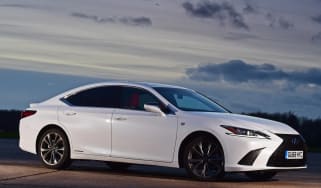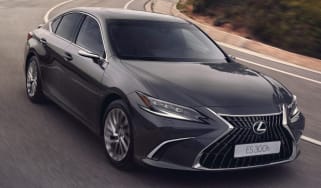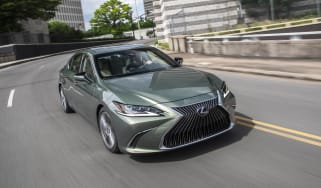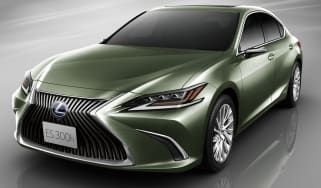Lexus ES review
The Lexus ES is a very comfortable and refined executive saloon with impressively low running costs

The Lexus ES has to compete with multiple executive car alternatives that focus on a sporty driving experience. If solely judged on this criterion, the Japanese saloon is sorely out-performed. That said, executive cars are assessed on a number of other key areas, such as refinement, comfort and interior quality. It is these areas where the ES claws back ground.
Furthermore, the ES comes with a very efficient hybrid powertrain, which, when combined with the above should appeal to those looking for an under-the-radar luxury saloon. Alongside low emissions and strong fuel economy, the ES promises relatively modest running costs – the latter being a boon for both business and private owners.
About the Lexus ES
In the UK market, ES is a relatively new name. In some countries, though, an executive saloon has been sold with the same moniker ever since Lexus started selling cars in 1989. In fact, when looking at worldwide sales, the ES is Lexus’ best selling model. Focusing back on the UK, Lexus replaced its GS with the ES in 2019. The biggest difference between the two being a switch from rear-wheel-drive to front-wheel-drive.
Being a large executive saloon, the ES’ key rivals are the BMW 5 Series, Mercedes E-Class and Audi A6. Other alternatives worth considering are the Volvo S90 and Jaguar XF. The Lexus ES takes a markedly different approach to all of these rivals, especially in the range of bodystyles and powertrains available.
More reviews
Car group tests
Road tests
Used car tests
Frustratingly (for some), the ES is only available as a saloon. This is in contrast to the BMW, Audi, Jaguar, Volvo and Mercedes which are all available as estates – some even have coupe derivatives as well.
As with the rest of the Japanese company’s range of vehicles, the ES comes as a petrol-electric hybrid. Although, unlike some of its siblings there is only one powertrain available - the 300h. It features a 2.5-litre four-cylinder naturally aspirated petrol engine with hybrid assistance, for a total of 215bhp.
The ES also only comes with front-wheel drive, whereas its main competitors all offer four-wheel drive – at least as an option. And the petrol-electric hybrid system can only be paired with a CVT transmission so no manual gearbox and definitely no high-performance version.
Lexus offers ES 300hs in standard, Premium Edition, F Sport and Takumi trim. The standard 300h version is well equipped and includes features usually listed as cost options such as adaptive cruise control with level 2 autonomy. Next up in the range is Premium Edition, which comes with 18-inch alloy wheels, a heated steering wheel, heated windscreen and wireless smartphone charging. Moving further up the model hierarchy, there is F Sport trim. This spec adds adaptive suspension and “triple eye” headlights – the former changing the character of the ES to a significant degree.
The top specification model is the Takumi, which adds luxury features like reclining heated rear seats, a premium Mark Levinson audio system and a head-up display. There are also a couple of option packs that can be bundled together with ES and F Sport models.

If you're looking to buy a Lexus ES, why not visit our sister site buyacar.co.uk for the latest deals...
Which Is Best
Cheapest
- Name300h 2.5 4dr CVT [without Nav]
- Gearbox typeAuto
- Price£37,804
Most Economical
- Name300h 2.5 4dr CVT
- Gearbox typeAuto
- Price£38,694
Fastest
- Name300h 2.5 4dr CVT [without Nav]
- Gearbox typeAuto
- Price£37,804










